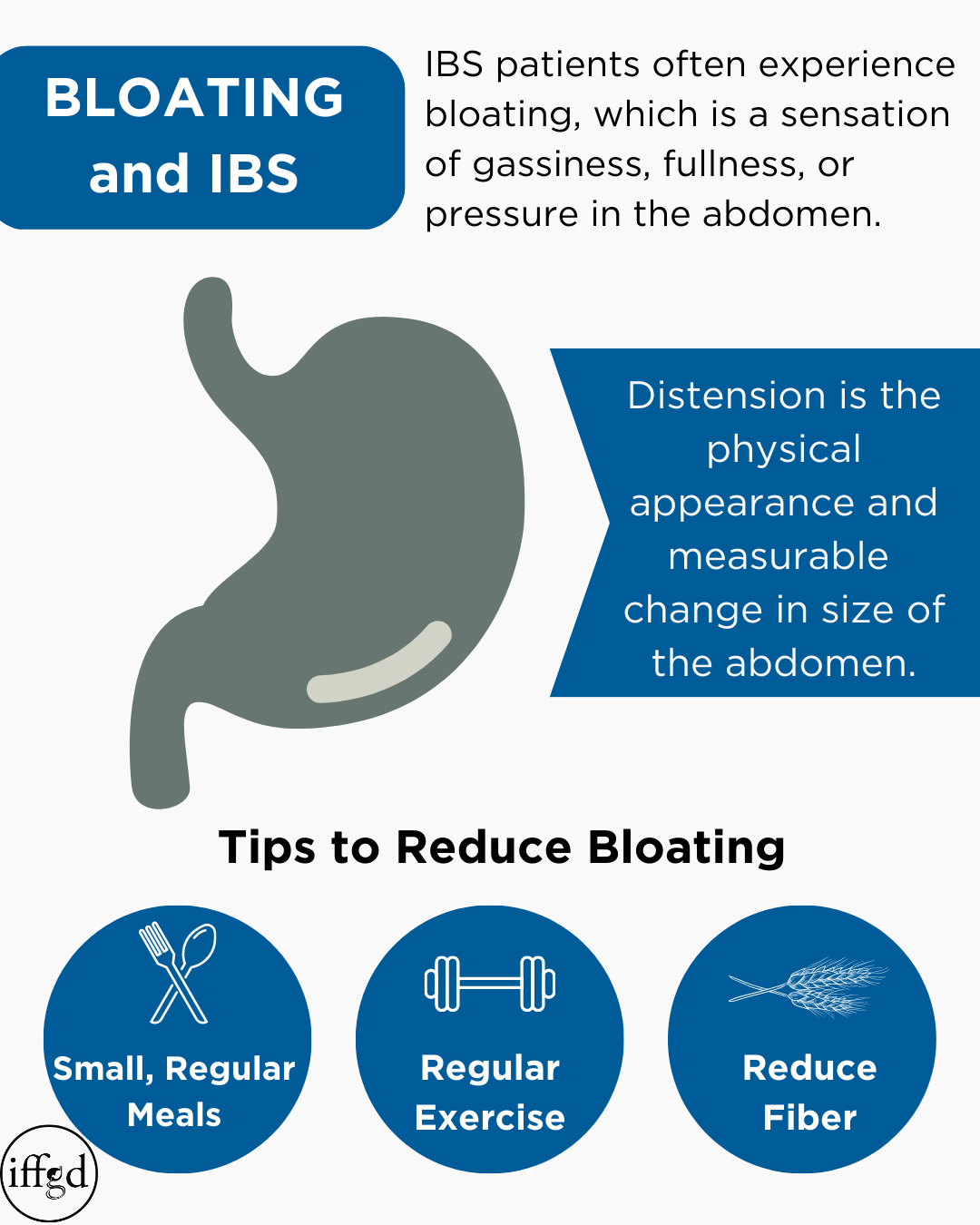“I feel pregnant,” or even “I look pregnant,” are frequent complaints by patients suffering from abdominal distention or bloating.

Bloating is a common symptom in irritable bowel syndrome (IBS), particularly in women, although mostly it is a nuisance rather than the most severe aspect of the disease. However, it may be the only symptom for that some patients experience.
Symptoms
The description of bloating given by the sufferers is surprisingly consistent. Patients report that their abdomen is relatively flat in the mornings but becomes progressively more distended over the day. By the evening, tight clothes such as jeans have to be replaced by loose fitting clothing. Some say their stomach enlarges before their eyes, and certainly a rapid onset over only a few minutes is not unusual. The distention tends to reduce after lying down, or overnight.
Causes of bloating
Patients and healthcare providers alike have assumed that excess gas within the gut causes it. However, several techniques for measuring intra-abdominal gas volume have failed to confirm this view. Nevertheless, dietary bulking agents such as fiber which cause gas will often worsen the symptom. For the present, the cause will remain unknown.
Treatment or Management
No therapy has been proven to be of definitive benefit and therefore the advice given to the patient must be a healthcare provider’s individual opinion. Dietary and life-style factors are perhaps the most likely to help in the long term. Recommendations are to try the following to reduce the symptom:
Eat small regular meals. Don’t avoid eating during the day, followed by a large evening meal. Eat small amounts throughout the day. Avoid rushed eating, but rather set aside 30 minutes to eat in order to “digest” your meal. Reduce fat consumption. A varied diet low in saturated fats may help.
Take regular exercise. Exercise improves bowel function and is recommended. As well as formal exercise sessions, movement during work time may be important. Many jobs involve sitting for much if not all of a day. Long periods in this position may worsen bloating regular breaks to “stretch the legs,” and perhaps therefore the abdomen, may help.
Reduce fiber consumption. Unless constipated, do not add excess bran, fruit, or fiber to your diet as these products can induce bloating. A sensible dietary fiber intake is suggested.
Avoid constipation. Bloating is often worse in severe constipation, and a regular bowel habit can help reduce it. There is clearly a problem in avoiding constipation while reducing consumption of bran and bulking agents. Nevertheless, with some experimentation, a happy medium can usually be found.
There is no one-size-fits-all with diet changes for symptom management. Working with a trained dietitian can help you find the best balance in your diet to manage bloating and other IBS symptoms.
Summary
Dietary and life-style measures may help to reduce bloating, although a complete cure for the symptom is perhaps asking too much. These tips, combined with your personal healthcare provider’s advice and medications they may prescribe, might at least make the bloating more bearable and thus less of an interference with other activities.
